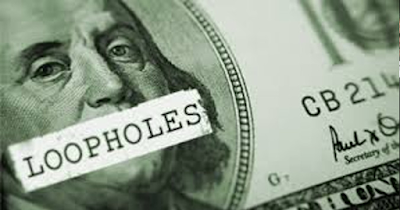Government Tax Loopholes Explained.
A government tax loophole is a provision in the tax code that allows people to reduce their taxes in a way that was not intended by the law.
There are many types of tax loopholes, such as deductions, credits, exclusions, and preferential rates.
Carried interest loophole
This allows some investment managers to pay lower taxes on their income by treating it as capital gains instead of ordinary income.
Capital gains are taxed at a lower rate than ordinary income, which can result in significant tax savings for these managers.
Heavy vehicle deduction
This allows small businesses to deduct the full cost of certain vehicles, such as SUVs and trucks, that weigh more than 6,000 pounds in the year they are purchased.
This deduction can reduce the taxable income of these businesses by a large amount, especially if they buy expensive vehicles.
Mortgage interest deduction
This allows homeowners to deduct the interest they pay on their mortgages from their taxable income.
This deduction can benefit those who have larger and more expensive homes, as they pay more interest on their mortgages.
This deduction can also encourage people to buy more homes than they need, or to borrow more than they can afford.
Charitable contribution deduction
This allows taxpayers to deduct the value of their donations to qualified organizations from their taxable income.
This deduction can sometimes be higher than the actual cost of the donation, especially if the donation is in the form of property or stock that has appreciated in value.
This deduction can also create incentives for people to donate to certain causes or organizations that may not be aligned with the public interest.
Saver’s credit
This allows low- and moderate-income taxpayers to claim a credit for contributing to a retirement plan, such as an IRA , a 401(k) or other international saving schemes.
This credit can reduce their tax bill by up to 50% of their contribution, depending on their income level.
This credit can help these taxpayers save for their retirement, but it can also reduce the revenue that the government collects from taxes.
Tax loopholes are controversial because they can create unfair advantages for some taxpayers over others and reduce the revenue that the government collects from taxes.
Tax loopholes are complex and dynamic aspects of the tax system.
The only difference between a tax man and a taxidermist is that the taxidermist leaves the skin. - Mark Twain












